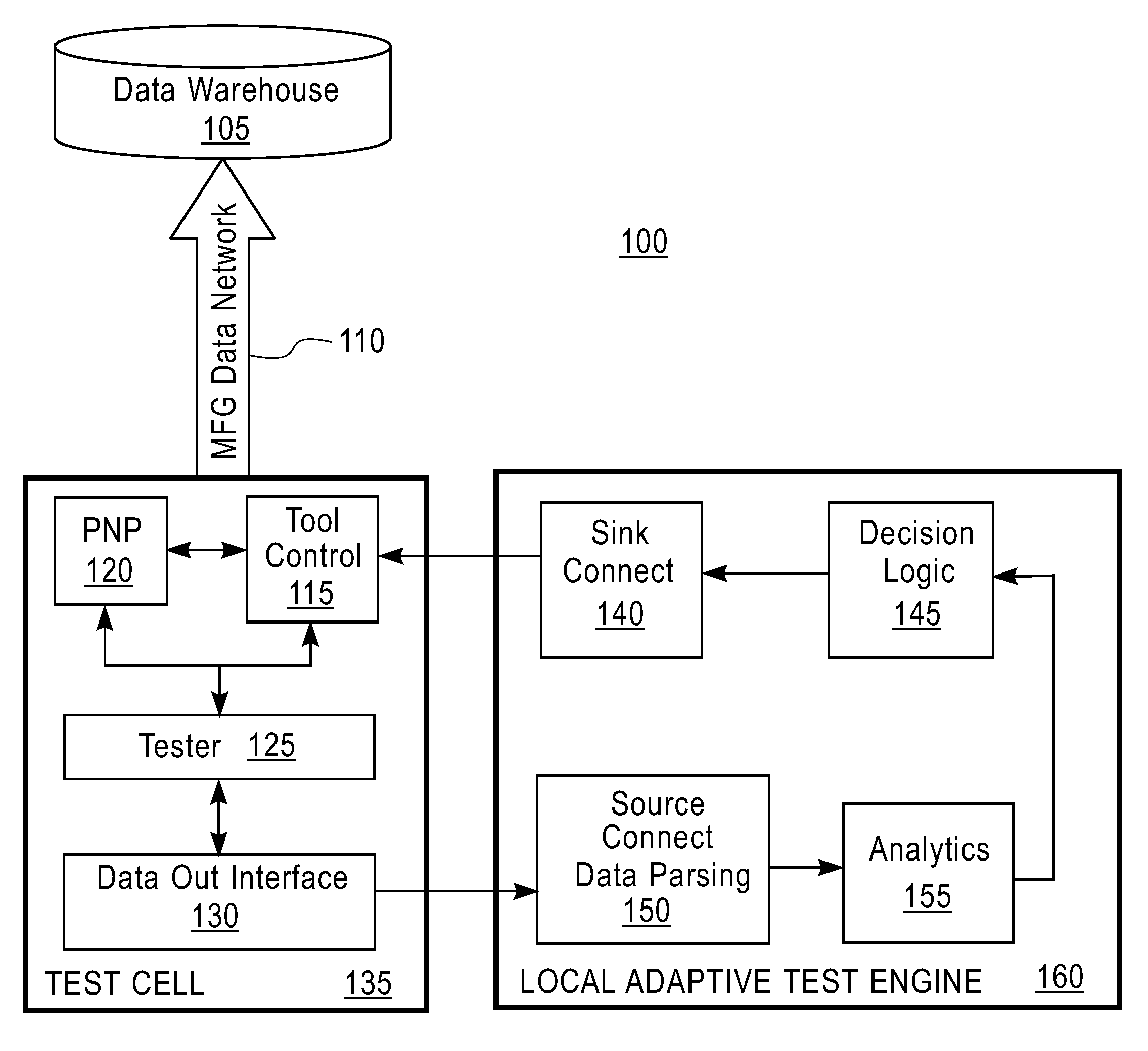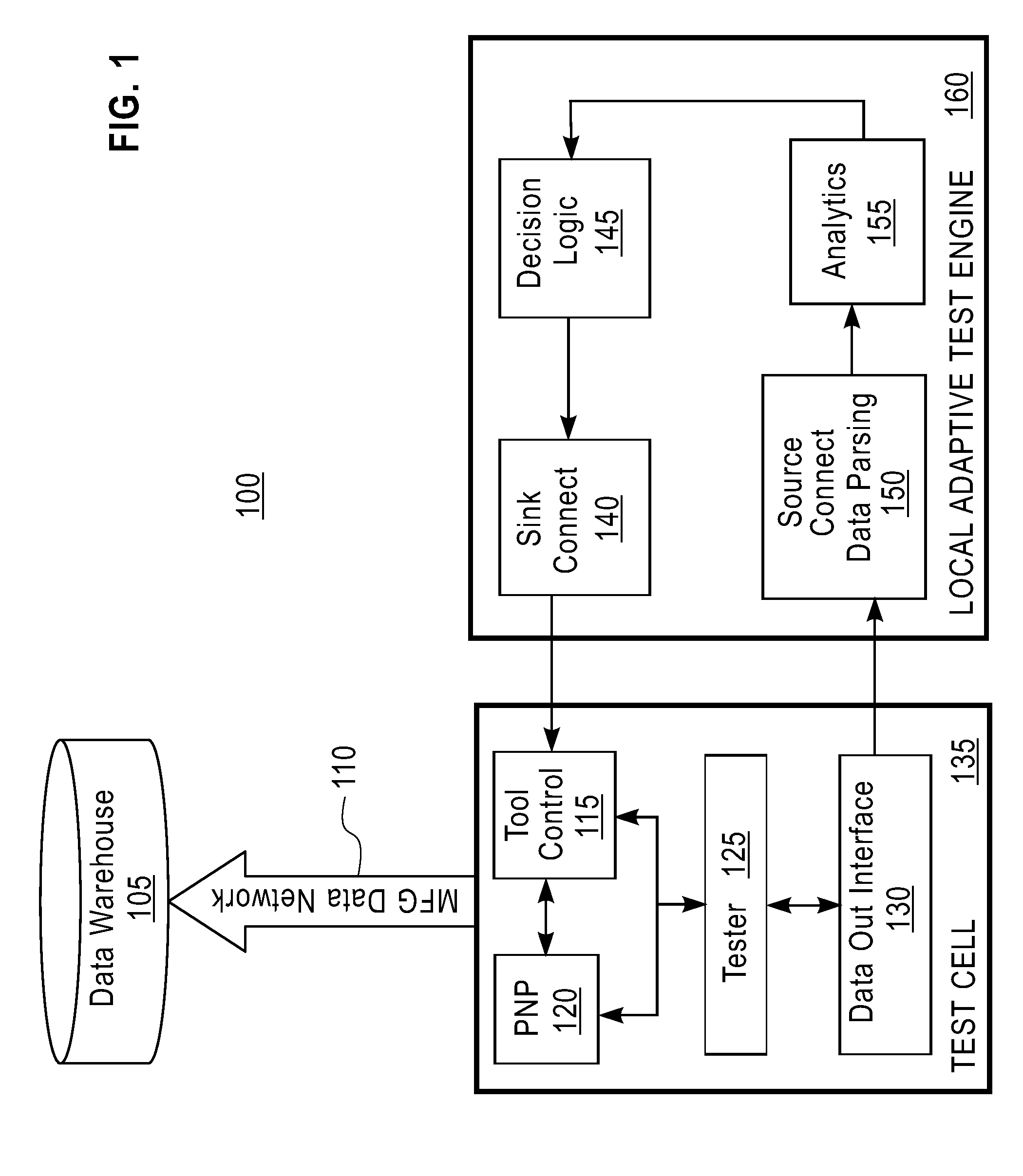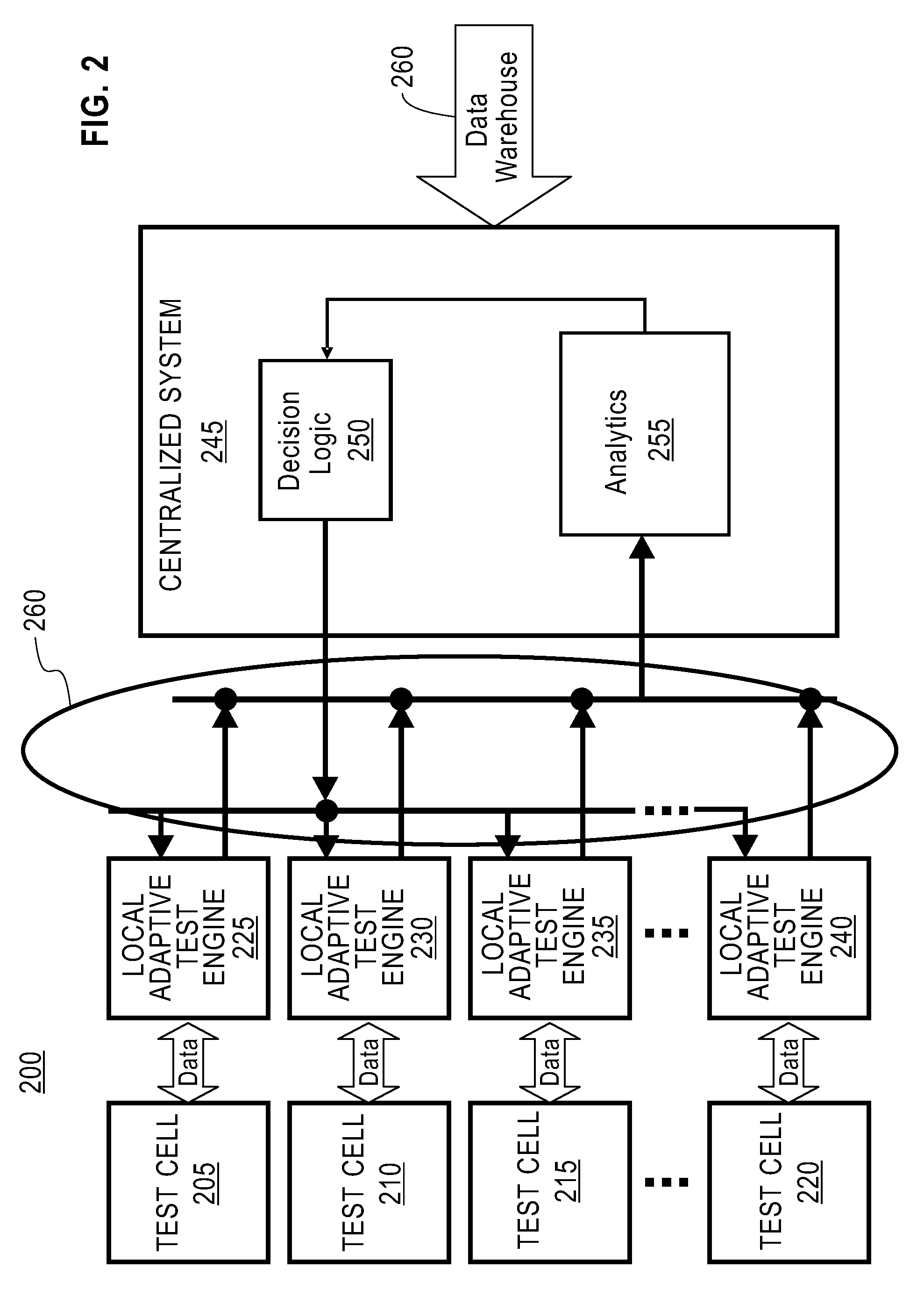Integrated cross-tester analysis and real-time adaptive test
a cross-tester analysis and adaptive test technology, applied in electrical testing, measurement devices, instruments, etc., can solve the problems of increased test time, waste of resources, and loss of semiconductor products
- Summary
- Abstract
- Description
- Claims
- Application Information
AI Technical Summary
Benefits of technology
Problems solved by technology
Method used
Image
Examples
Embodiment Construction
[0018]The SPC refers to using statistical methods to measure and analyze variations in processes (e.g., a testing process or a manufacturing process). The SPC involves real-time monitoring and analysis of a testing to detect outliers and anomalies and to build statistical models for a predictive control of the testing. The predictive control refers to computing future behaviors according to a model of data (e.g., test results). Aspen Real-Time Statistical Process Control Analyzer is one type of commercially available product performing the SPC. Sherry F. Lee, et al., “RTSPC: A Software Utility for Real-Time SPC and Tool Data Analysis”, IEEE Transaction on Semiconductor Manufacturing, February 1995, wholly incorporated by reference as if set forth herein, also describes software performing the SPC in real-time. The Adaptive Test refers to a methodology for adapting a tester to characteristics of a product under the testing based on real-time test results and modeling of historical da...
PUM
 Login to View More
Login to View More Abstract
Description
Claims
Application Information
 Login to View More
Login to View More - R&D
- Intellectual Property
- Life Sciences
- Materials
- Tech Scout
- Unparalleled Data Quality
- Higher Quality Content
- 60% Fewer Hallucinations
Browse by: Latest US Patents, China's latest patents, Technical Efficacy Thesaurus, Application Domain, Technology Topic, Popular Technical Reports.
© 2025 PatSnap. All rights reserved.Legal|Privacy policy|Modern Slavery Act Transparency Statement|Sitemap|About US| Contact US: help@patsnap.com



